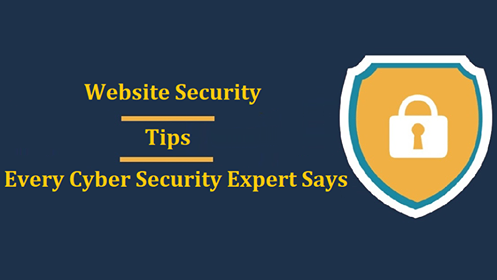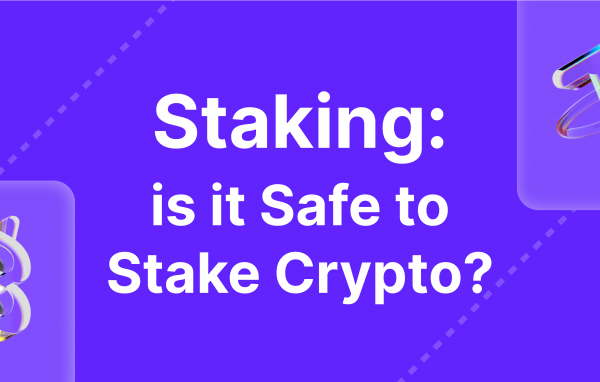Cyber-attacks and website attacks are proliferating, steering for the increase in the need for cybersecurity. According to a research report by Sucuri, there were 2.3 billion data breaches in 2018. A successful cyber-attack on your website can lead to severe losses of your organization’s critical information and data and massive losses on business income. They can also result in privacy and network security lawsuits as well as damage the reputation of your organization that had cost a significant amount of resources to build.
Website security is essential for keeping hackers and malicious people from accessing your data. It takes several tips to come up with a working cybersecurity strategy. Cybersecurity experts have proposed the following tips that are crucial for the security of any website. Following them will ensure that your website is safe and secure from any attack.
1. Keep your Software Up to date

Keeping your software up to date is a very crucial security undertaking that every website should be willing to partake. Software updates come with several fixes that the previous versions lacked. They come with crucial patches to security holes, increase the stability of your software and delete outdated features. All these upgrades are aimed at improving website security as well as the experience of the users.
It is, therefore, essential to install software updates when they pop up to protect your website.
2. Use Anti-virus and Firewall Protection
Antivirus and firewall protections are known as the “two most important legs of website security.” Antivirus software is the fundamental defence system against any offline and online risks. The antivirus software scans and deletes any dangerous and unwanted application like worms, Trojans, spams and any other computer viruses. These viruses have the capabilities of stealing sensitive data and destroying valuable information. Antivirus software protects your website against them and is therefore of great essence to the optimal performance of your website.
Firewall secures your website against any unauthorized entries. Having a firewall installed onto your website maximizes the general security of your website.
3. Use Strong Passwords and Management Tools
Secure login details are an essential part of website security. They provide vital protection from identity theft and financial fraud.
One of the popular methods that hackers use to gain access to websites is by guessing passwords. If you are using guessable and straightforward login details on your website, then a hacker will find it easy to break into your website. A password that is not easy to guess makes it difficult for an unauthorized person to access your site.
A good password should be lengthy and complicated, more than eight characters, and be a mixture of numbers, letters and symbols. Password management tools can be of great help when it comes to the generation of strong passwords.
4. Use switched HTTP to HTTPS
Switching HTTP to HTTPS is a worthy effort that comes with a lot of benefits. HTTPS is an HTTP encrypted with a Secure Socket Layer certificate. An SSL certificate encrypts all data and information transferred between the server and a browser. This makes it hard for hackers to gain access and interpret the data being transmitted. It thus allows for a secure connection between a web server to a browser.
There are a lot of SSL certificates which you can use today. Wildcard SSL certificate is one of the best SSL certificates that your website should have in case if you have unlimited subdomains. Wildcard SSL being a cost-effective solution, offers many exciting features to site holder.
5. Use Two-step Authentication

A two-factor authentication feature is also an exemplary security measure that has been proposed by most cybersecurity experts. It is where users are asked to log into their accounts by using not only their passwords but also other factors such as codes and secret words. After a user has entered the password, he will be required even to enter a code that is usually sent to his phone. This makes it more secure for websites.
6. Beware from Social Engineering Attack
Social engineering attacks is where potential website attackers lure or trick users into giving them the login details. They use phone calls and other social media platforms to reach the potential victims and manipulate their psychology for them to get the login details.
The organization should be aware of such kind of attacks and train their employees on how to recognize and deal with them. Social engineering attacks is a broad spectrum that occurs to website users. They can happen in any of the below ways.
- Phishing- This is the most common social engineering attack that website users should watch out for. A phishing attack is intended to obtain confidential information such as social security numbers, use malicious links that aim to redirect users to phishing landing pages and use fear and threats to make users respond quickly.
- Baiting- This is also another typical social engineering attack whereby attackers use a promise of an item or gift to entice victims into giving them what they need.
- Quid Pro Quo- unlike baiting where a gift is promised, quid pro quo promises service to entice victims.
Website users should be keen to identify such kind of social engineering attacks and teach their employees how to react to mitigate them. Other social engineering attacks which are common but not captured in this article are tailgating and pretexting.
7. Alert from Phishing
As noted earlier, phishing is a form of social engineering attack whereby an attacker pretends to be a trusted entity, dupes an individual into clicking a malicious link which can then cause the installation of malware. Phishing attacks have got devastating consequences, such as unauthorized purchases and other forms of financial fraud.
It is good to be alerted to ensure that no phishing attack goes through your website. You also must put in place a response plan that will deal with any phishing attempt. You should then evaluate your interactions with your customers to maintain a communication stream with them. You must identify and educate potential phishing targets, especially new employees. Finally, you must make use of Domain-based Message Authentication Reporting and Conformance (DMARC) to protect your email from being tracked and spoofed.
8. Be Aware of SQL Injection Attacks
SQL injection attack is one form of injection attack which allows to modify the data related to users or web application. Hackers can interfere with the query that an application creates to its database. Cyber hackers can make use of such vulnerabilities to dodge the installed security measures.
As such, they can retrieve the content of the whole SQL database. Websites that use SQL database are the most vulnerable to this attack. Website owners ought to be aware of them and put in place measures to mitigate them. To do this, websites should use parameterized queries and validation queries.
9. Do Not Use Same Passwords Twice
Passwords are what protects websites from hackers who are ever ready to ruin your entire life. Using strong passwords has been explained as an essential measure for your cybersecurity. It is also crucial that you never use a password more than once, especially for multiple accounts. All a hacker will need is a single password to access all your websites or online accounts. Password hacking can have serious effects.
10. Be Aware of Suspicious Emails
Hackers are also using suspicious emails to enter sites. Website owners should be on the lookout for such emails. Auspicious email can have any of the following characteristics.
a. When it is sent via a public email domain such as …@Gmail or …@yahoo Domain name is not spelled correctly.
b. Suspicious links have been attached.
c. The email message has a sense of urgency.
d. The email has been poorly written.
11. Be Careful of Public Wi-Fi
There is a lot of free public WIFIs that exist to date. Using them has a lot of risks. This is because hackers will deliberately create such free WIFIs to investigate the personal details of those who use them. Using public WIFIs, attackers can get into your social networks, steal your essential credentials, among other threats. Users should be keen when using them.
12. Restrict File Uploads
Unrestricted file uploads make your website vulnerable for hackers to access your site. A hacker can easily upload whatever he feels like uploading, including files carrying malware which could bring a plethora of risks to your website. One way of preventing this is by allowing only specific file extensions among other file upload restrictions.
13. Be aware of Error Messages
When there is a problem with the website security, usually a pop message or a notification will show up on the website. Website users should be aware of such messages and troubleshoot the website immediately the error message occurs.
14. Protect against XSS Attacks

Cross-Site Scripting (XSS) is a type of injection attack where dangerous scripts are injected into victims’ websites. The script can access sensitive information from the user’s website as well as causing serious damages to the sites. Here, an attacker utilizes a web application to send out malicious code, which is in the form of browser-side script to the different users.
Summary
All websites are vulnerable to the many cyber insecurities that exist today. Cybersecurity is, therefore, an essential part of any organization. Sites should be able to follow the guidelines mentioned above and tips, which most cybersecurity experts propose, to keep their sites safe and secure.




